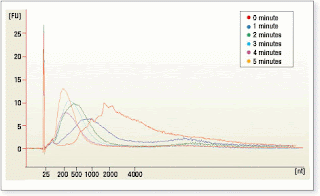Molecular structure activity
studies for some Diphthamide Nano particles derivatives indicate that the
conformational characteristics along with the nature and position of the
substituents on the Diphthamide Nano particles derivatives ring play an
important role in their biological and biochemical activities (Figure 1).
Therefore, we have calculated the optimized molecular geometries of some Diphthamide Nano particles derivatives.
Calculations are carried out on the
structures of these medical, medicinal and pharmaceutical Nano drugs using Hartree–Fock calculations and also Density Functional Theory (DFT) by
performing HF, PM3, MM2, MM3, AM1, MP2, MP3, MP4, CCSD, CCSD(T), LDA, BVWN,
BLYP and B3LYP levels of theory using the standard 31G, 6–31G*, 6–31+G*,
6–31G(3df, 3pd), 6–311G, 6–311G* and 6–311+G* basis sets of the Gaussian 09.

